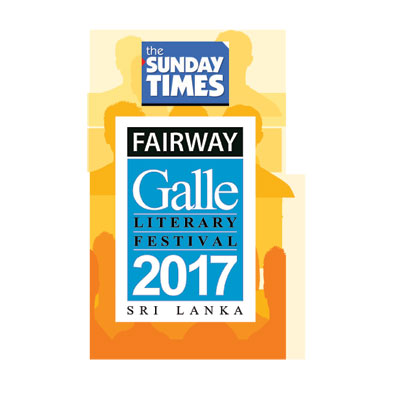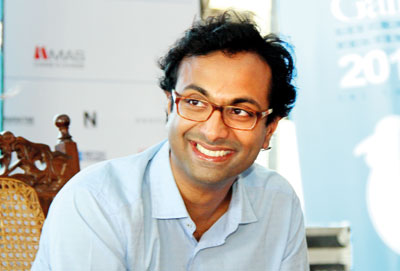Waiting for the truth at whatever cost
 Anjan Sundaram was robbed twice in his first few months in the Congo. If he needed proof that he had very little idea of what he had got himself into, he had it that second time, standing on the curb and watching thieves drive away with all his meagre savings.
Anjan Sundaram was robbed twice in his first few months in the Congo. If he needed proof that he had very little idea of what he had got himself into, he had it that second time, standing on the curb and watching thieves drive away with all his meagre savings.Sundaram’s mother had cried when her 22-year-old son told her that he was going to abandon his degree in mathematics from Yale and a job at Goldman Sachs to go and become a journalist. He didn’t have a job with a news outlet lined up, and he chose the Congo more or less at random – a chance encounter led to him finding a family to live with in Kinshasa. And then there was the story that was going untold.
The war here had been called the worst in the world. “It’s very common place to have just one line in a news story read: ‘Over five million people have died in the war in the Congo,’”Sundaram says, pointing out that even such “colossal statements” had done little to propel the ongoing crisis into global headlines. In fact, when Sundaram arrived in the Congo, there were only three other foreign reporters based there, all of them living in the capital Kinshasa, while the war itself raged more than 600 miles to the east.
While his colleagues occupied suites at 5-star hotels or were waited upon in colonial bungalows, Sundaram who still hadn’t found a job, could only afford to pay for a room with a family in a poor neighbourhood. Electricity was unreliable and some of his neighbours could only afford to feed one of their members a single meal every day – the others would go to scavenge for their food. Things had begun to get quite desperate for Sundaram himself when he finally managed to get a job as a stringer for the Associated Press.
This meant they would pay him per word – not per word he wrote, but per word they published – and though it was a modest amount, it was what Sundaram had been waiting for. One of his big breaks came when he wrote a story for AP on how a pygmy tribe had sold their vast acres of forest to a logging company for a few bags of salt and some soap.The people had no idea of their rights, or of how valuable their trees were. They could not conceive how much damage a logging company might do. “I will tell the spirit of the forest that his trees must be cut down,” the chief Bokenu told Sundaram. “It is so that his people can survive.”
Sundaram would eventually witness the pivotal elections of 2006 and their fallout, watching as Kinshasa was torn apart by violence. His reporting from the Congo would earn him a Reuters journalism prize.
When Sundaram chose to write a book – Stringer – it wasn’t like his journalism. It was instead a memoir, one which laid bare his own initial naivety. “I could have easily written from a position of authority, but I never related to those kinds of tellings myself,” he says. Instead, Sundaram let the reader know that he operated within the same constraints they did, received as little information or was shaped by similar biases. The result is a nuanced, and complicated narrative, one which demands much of his audience.

Sundaram used Stringer to also explore how international media outlets worked, and his insights are not always complimentary. For instance, stories that fed back into stereotypes of the Congo were the most in demand, and local reporters on the ground were little valued. “To claim that I was above the system would not be honest, I was very much a part of the system,”Sundaram tells the Sunday Times. “My editors at AP and I tried our best to produce good work; work that was as textured, layered and as nuanced as possible.” But there were also other forces at work.
“Even the stories that my editors and I produced, in which we tried to break these stereotypes and step outside them, newspapers would not pick them up as much. The AP did not find them as commercially viable as standard stories, and so it’s a very powerful economic system that you are putting yourself up against when you begin to criticise these narratives.”
When Sundaram left the Congo after some 18 months, he moved to Rwanda. It was where he planned to write Stringer, a place he expected would prove comfortably boring for him. He was going to teach a group of journalism students. But Sundaram was about to discover that underneath the bright, progressive veneer Rwanda presented to the world, was a dark heart. It was his students who would show it to him.
He arrived there in 2009, and his class consisted of some 11 journalists. None of them were practising by the end. One of his students was shot dead on the day he criticized the government. Two women were sent to prison, at the time for 17 years, for insulting President Paul Kagame, who had taken office in 2000. Two others fled to Europe fearing for their lives. Others joined the president’s propaganda team or simply dropped out of journalism. One of them went mad.
Sundaram watched in horror and grief, and it was these experiences that fuelled his next book, one which laid bare the insidious terrors of dictatorship and the complicity of the international community in what was happening in Rwanda. The book denounced the myth of Rwandan development, and challenged the notion that the country had progressed toward a harmonious society post the government-led genocide that had pitched the majority Hutu against the minority Tutsi over a 100 days in 1994.
Though Kagame’s government was reportedly restoring the country to peace and prosperity, Sundaram could see Rwandans still lived in crippling fear.
“There were very few books written about local journalists, that set out to illuminate the lives these reporters lead or what their working conditions were like,” says Sundaram. He found that to write effectively, he could not write from a place of anger. He chose instead to write from a place of deep affection for his students and for the country itself.
Rwanda was the closest to a home the reporter had – born in India, raised in part in Dubai, studying in the US and working in the Congo, he had few chances to put down roots. Rwanda had been his base for five years, and he knew the moment he published this second book, he was ensuring he could never go back. Even to contact his friends would be to put them in danger. It broke his heart.
“I knew who I was writing this for, it was for my journalist colleagues and my friends,” he says. He knew many who had paid a very high price for standing against the government’s repression and lies, and he wanted to do his part to ensure they were not forgotten.
His book Bad News: Last Journalists in a Dictatorship was published in 2016. It was an Amazon Best Book that year and was nominated for PEN, America’s non-fiction prize.
Though Sundaram has won journalism accolades and his books have been widely acclaimed, he still finds himself trying to explain to his mother why he does, what he does. “I think the work journalists do is more valuable than ever today,” he says. Sundaram believes his job is to hold power to account. Trump’s victory offers a critical moment for media in the US, a time when all around the world demagogues and authoritarian regimes are gaining ground. “We are being forced to confront the true damage that can result when people stop speaking, or lose their voice, or even stop listening. This is an important time for us to reflect and examine the ways in which the media works; the ways in which we tell stories about ourselves and each other.”
Sundaram also trusts in the power of the truth. He remembers a friend in the Congo telling him: ‘Lies take the elevator, but truth takes the stairs.’ Sundaram believes truth is always worth the wait.


